White poppy ceremonies held in memory of all victims of war, amid soaring casualties worldwide
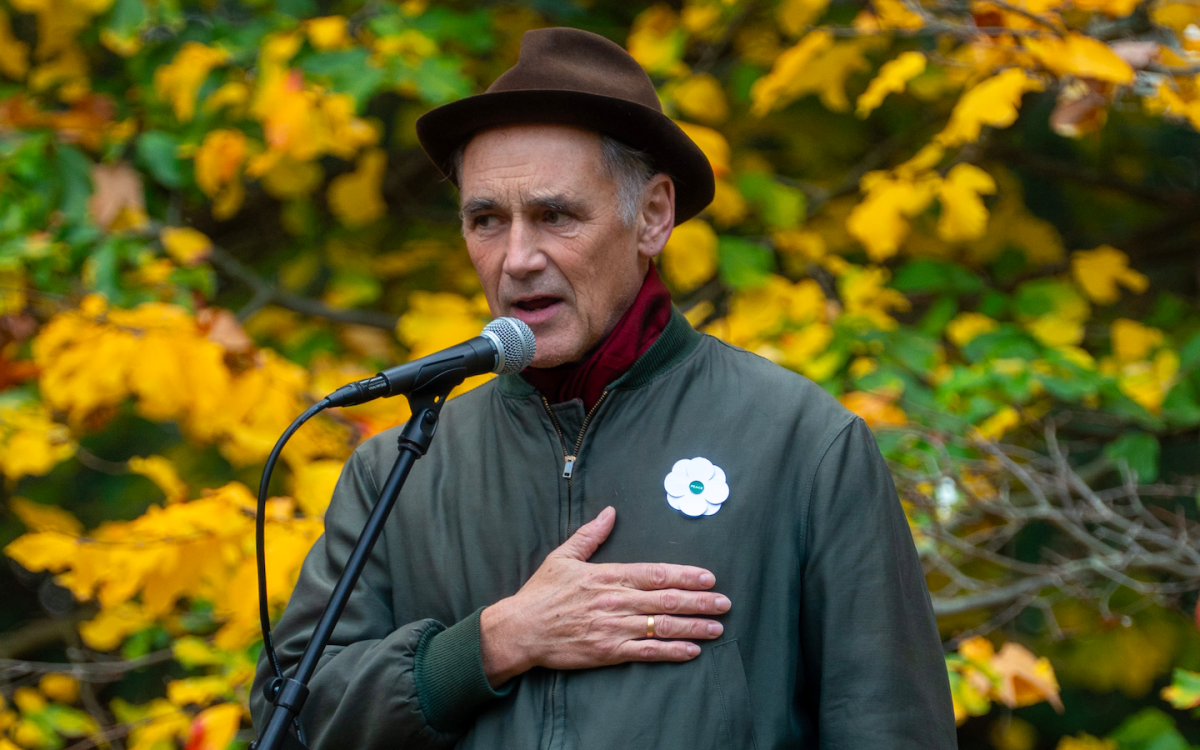
White poppy ceremonies held in memory of all victims of war, amid soaring casualties worldwide
White poppy ceremonies across the UK on Remembrance Sunday marked a year of record global casualties in conflict zones. Wreaths of white poppies were laid in dozens of towns and cities in memory of all victims of war, both past and present.
The number of such events has doubled in recent years, with an increasing number of official ceremonies now including white poppies, in addition to many independent events. White poppies featured in ceremonies in Aberystwyth, Bath, Birmingham, Bristol, Bromley, Bury St Edmunds, Edinburgh, Leamington Spa, Leicester, Norwich, South Manchester, Uxbridge, Wokingham and at several war memorials across London. (See photos below)
At the Cenotaph in London, the Green Party Leader Zack Polanski drew praise from peace campaigners for wearing a white poppy alongside his red one, an act seen as a quiet challenge to the overwhelming military-focus of mainstream remembrance. Afterwards, he joined other white poppy wearers at the National Alternative Remembrance Ceremony. In Bristol, Green Party MP Carla Denyer laid a wreath of red and white poppies in tribute to both civilian and military victims.
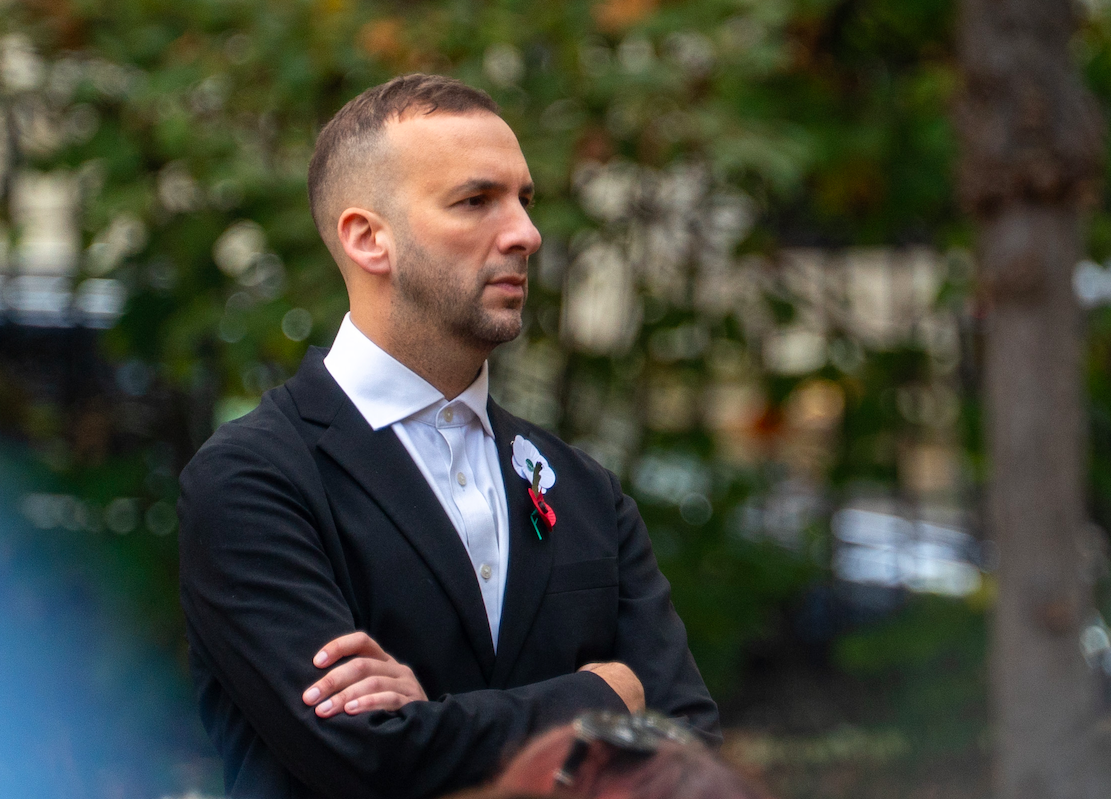
Green Party Leader Zack Polanski at the National Alternative Remembrance Ceremony - Photo by Philip Wood
In London, a special series of commemorations took place throughout the day, starting with the National Alternative Remembrance Ceremony organised by the Peace Pledge Union (PPU), and culminating with a 'Virtual Cenotaph' outdoor video projection, organised by Every Casualty Counts and Quakers in Britain.
The National Alternative Remembrance Ceremony drew record numbers, with around 300 people attending - roughly double the turnout in recent years. The event, hosted by activist and comedian Kate Smurthwaite, took place in front of the memorial to conscientious objectors and featured a two-minute silence and the laying of white poppy wreaths.
Actor and peace campaigner Sir Mark Rylance, speaking at the ceremony, reflected on the impact current wars are having, especially on children. “It’s been a brutalising year, hasn’t it?” he began. “To so regularly see these images and stories of civilians, and military people, suffering, being wounded, being killed. It's been hard. It's felt very alone at times, to be someone who disagrees with the idea that violence is the way to resolve conflicts. And particularly that conflicts between adults should have anything to do with children." He concluded his speech by asking what we can do to end wars, given that a rising proportion of our taxes go towards military spending: "Should we not withhold that tax, if our government refuses to extend our collective abhorrence of harming children?"
Rachel Taylor, Executive Director of Every Casualty Counts (ECC), spoke at the ceremony about the launch of a new project, Memorial 2025, which tells the stories of people killed in conflicts over the past year. "War dehumanises us all,” she said. “This dehumanisation can be explicit, through the propaganda of genocide - or it can be technological, with the equipment we have today enabling people to kill others thousands of miles away without ever seeing their faces.” She described how casualty recording, such as that carried out by ECC, works to restore humanity to the countless victims of conflict: "All of them deserve to be known.”
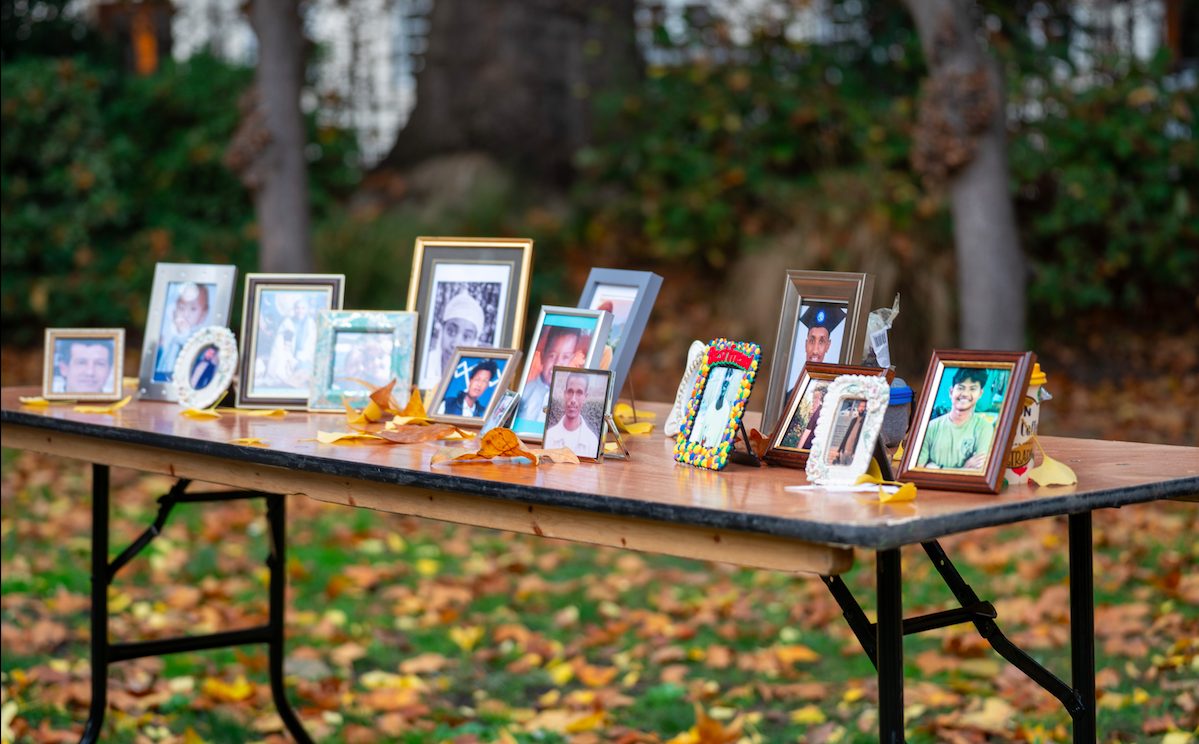
Photos from Memorial 2025, National Alternative Remembrance Ceremony - Photo by Philip Wood
Following her speech, attendees heard three testimonies from Memorial 2025, against the backdrop of an installation of photographs honouring their memory.
Later in the afternoon, the Remembrance Lecture organised by the Movement for the Abolition of War was given by Lord John Alderdice, founding director of the Centre for the Resolution of Intractable Conflict at Oxford. Drawing on his role in the Northern Ireland peace process, Alderdice examined why wars persist and explored practical approaches to resolving conflict without violence - through dialogue, responsiveness and sustained relationships.
The evening’s ‘Virtual Cenotaph’ video projection brought the day to a moving close. The event launched Memorial 2025, is now available to explore in full online. A huge projection covered the entrance of Friends House near Euston, showing photos of ordinary people killed in conflicts over the past year in Ukraine, Sudan, Mexico, Palestine, Haiti and many other war zones worldwide.
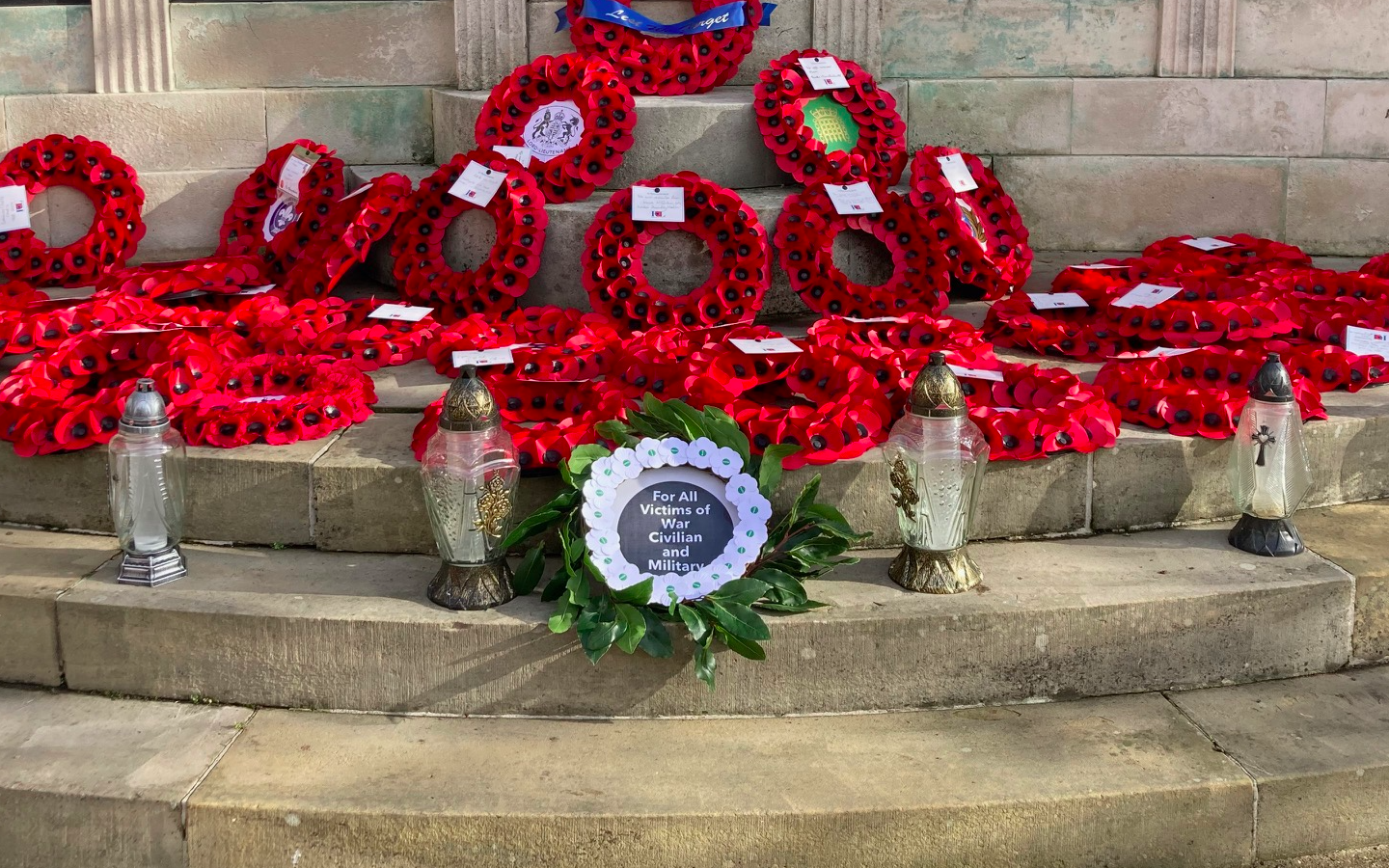
White poppy wreath laid at Wood Green civic ceremony
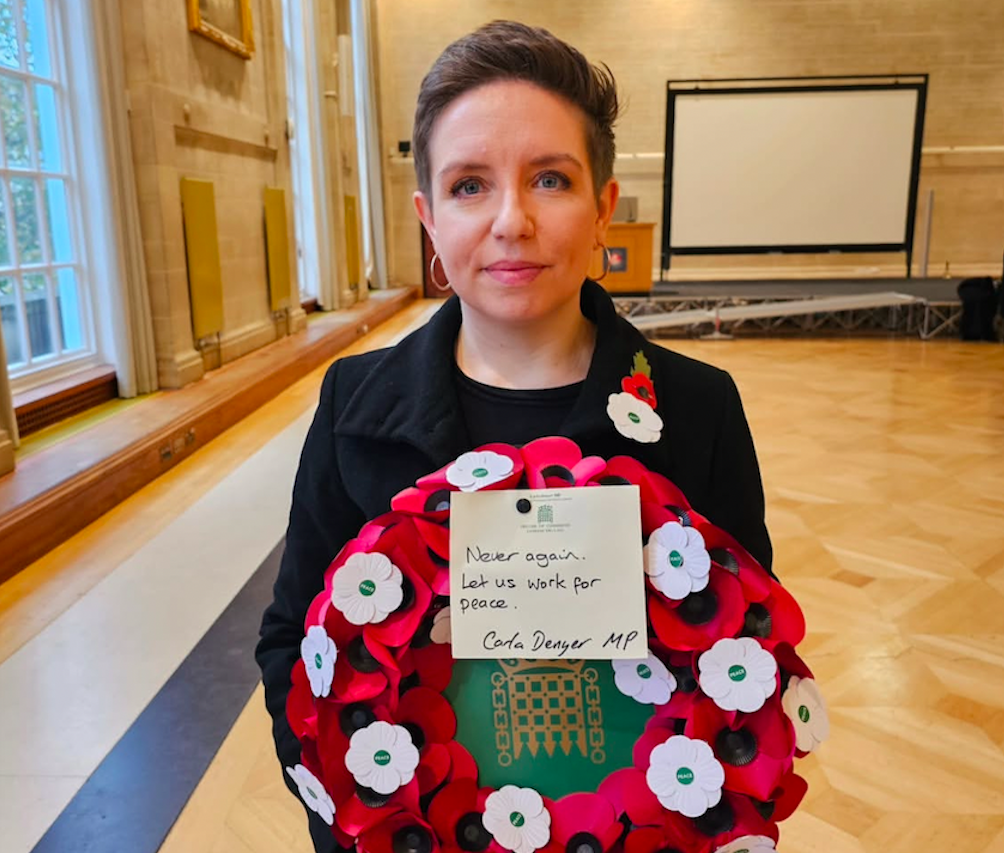
Green Party MP Carla Denyer with a white and red poppy wreath to lay at Bristol's official city ceremony
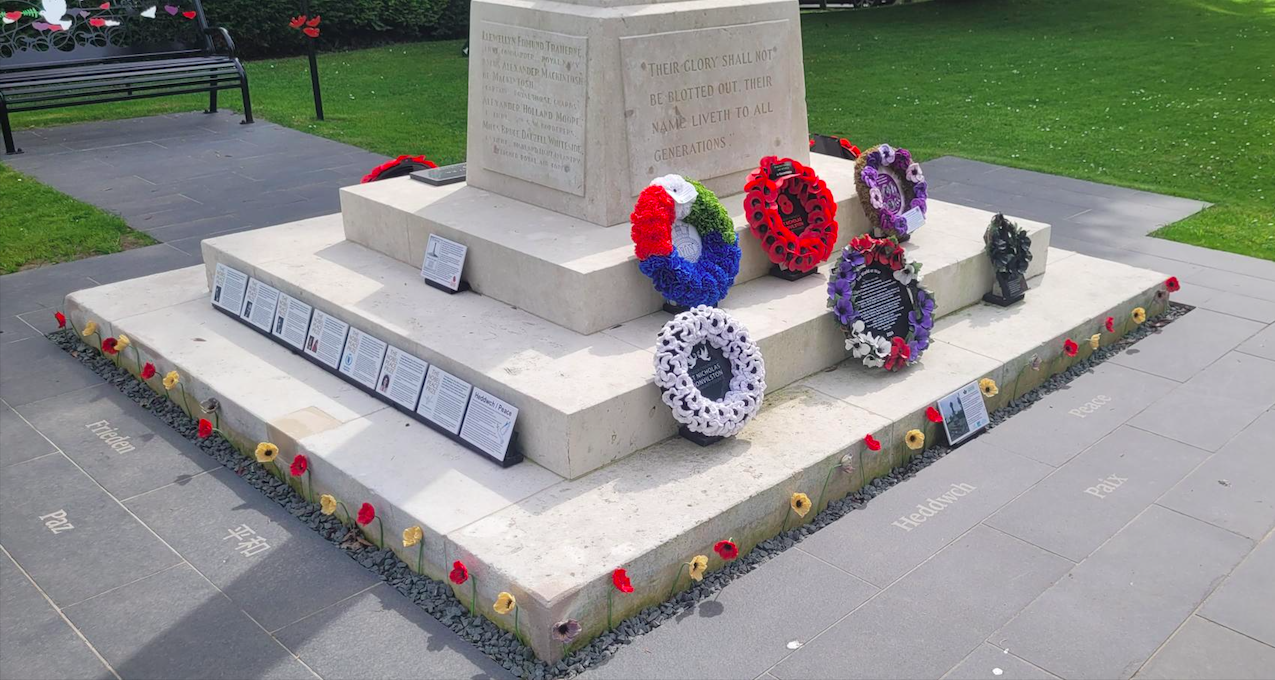
White poppies on war memorial in St Nicholas
War will end when people refuse to go along with it. Since the PPU was founded in 1934, many thousands of people have signed the peace pledge, committing to working for peace and tackling the causes of war today. Sign the peace pledge and join the PPU today!
Top photo - Mark Rylance, National Alternative Remembrance Ceremony - Photo by Philip Wood




